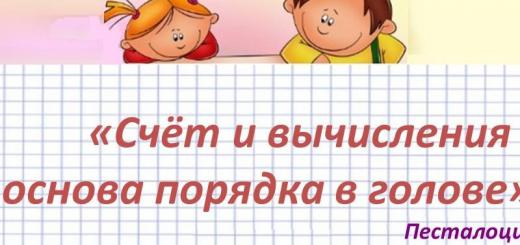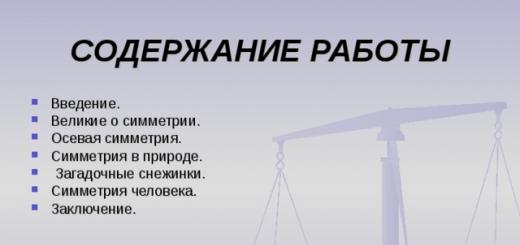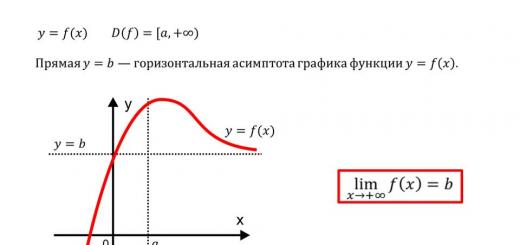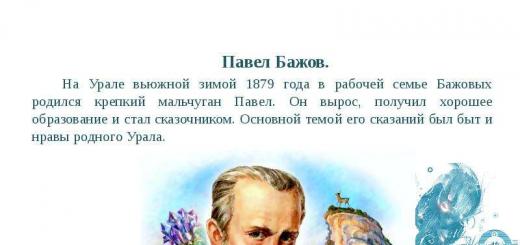A new book- this is the text of the play by Joan Rowling, the premiere of which. The publishing house "Azbuka-Atticus", which owns the rights to the work, told Life that Maria Spivak would do the translation.
Her version of the Russian adaptation of the saga about a young magician is known among fans as an alternative one. The translator herself published it on the Internet for free. In the wake of dissatisfaction with the official version of books from another publishing house, Rosman, interested readers who did not know English tried to read books in the Spivak localization. There were also dissatisfied free translation Maria: from the moment the first book was published.
Analysis of Spivak’s translation has repeatedly appeared on the Internet. Readers are confused by her literary style. Trying to adapt easy language Rowling, the translator does not disdain colloquial expressions. In addition, in the translations, many, but not all, of the characters' names and surnames are literally translated into Russian and played out in the form of puns.
A participant in the Hogsmeade forum in 2010 conducted a detailed and corrosive analysis of Spivak’s first translation. Problems arise from the very first sentence. Here is an unchanged analysis of the first two paragraphs of “Harry Potter and the Philosopher’s Stone”:
"Mr and Mrs Dursley, residents of No. 4 Privet Alley 1, were very proud of the fact that they could declare at any time: everything with us, thank God, is completely normal. It was impossible to imagine that such people would be involved in something unusual, much less mysterious - they could not stand any nonsense.
Mr. Dursley worked as the director of a company called Grunnings, which made drills. Mr Dursley's big meaty man 2, the neck was almost completely absent, but a very long mustache grew under his nose 3. Mrs Dursley, skinny blonde, had a neck of double length 4, which couldn’t have come at a better time, because this lady 5 loved to look over other people’s fences and spy on their neighbors. The Dursleys had a little son named Dudley - according to the parents, a more beautiful child had never been born."
- Privet Drive in original. Privet translates as “privet”, everything is correct here. But was there any point in translating this unremarkable Muggle name?
- Well, they don’t talk about people who are “fleshy”!
- Excuse me, but where else can a mustache grow?! And why are they long? Large mustache is more of a lush mustache.
- A clumsy phrase, not in Russian.
- Calling Mrs Dursley "lady" is overkill.
Controversial translation decisions continue to appear:
The list of names edited by Spivak also became popular on social networks:
- Madame Trick - Madame Moonshine. In the original the character's name was Madam Hooch, literally "Madame Moonshine".
- Buckbeak (aka Wingbeak) - Horse Show . Spivak played on the complex name of the hippogriff, a mythical creature, a mixture of a horse, a lion, and an eagle. The words “jumping” and “horse” were used, but in the original everything is much more complicated, his name was Buckbeak, from the words buck - “kick” and beak - wings.
- Neville Longbottom - Neville Longbottom. Both translations look comical, given the fact that Neville's parents turn out to be martyrs in the story: they were tortured until they went crazy. Both Longbottom-Longbottom live in the hospital.
There are also simpler cases in which Spivak decided to change her name:
- Severus Snape - Villainous Snape. IN last book It turns out that Villainous is a real hero, and his "evil" name sounds absurd.
- Dudley - Dudley.
- Bathilda Bagshot - Bathilda Zhukpuk. “Zhukpuk” has already become a common name for Spivak’s translations.
- Gilderoy Lockhart - Sparkle Lockhart. The name of Harry's narcissistic teacher from the second book has been completely changed.
- Moaning Myrtle - Melancholy Myrtle. A word that does not exist in the Russian language appeared in the name of the ghost.
- Sorting Hat - Sorting Hat.
Even though honored translators sometimes
On the eve of the release of JK Rowling's new book in Russian, a group of domestic Potter fans quite sharply opposed the translations of the series authored by Maria Spivak. They even collected signatures on the Internet for , which now owns the rights to Potter in Russia. Maria Spivak's translations cause a lot of controversial reviews, although for a long time they were considered a good alternative to the translations in which the Harry Potter books were first published in Russian. But few people know what kind of person is hidden behind these texts. We decided to chat with Maria about Potter, unexpected fame and her own books.
Dossier: Maria Spivak
Maria Viktorovna Spivak was born on October 26, 1962 in Moscow. Graduated from the Faculty of Applied Mathematics in technical university, majoring in mathematics and engineering. Author of the novels “The Year of the Black Moon” and A World Elsewhere (written in English). She is known for her translations of the Harry Potter series of novels. In 2001 she was nominated for the Small Booker Prize - “for best translation From english". In 2009 she was nominated for the Unicorn and the Lion Award for the best translation of contemporary British and Irish literature.
"Harry Potter" is a religion for fans"
What do you think about collecting signatures against your translation of Harry Potter and the Cursed Child?
So, glory, you came to me, I think. True, not in the form in which I dreamed of you.
How would you explain the behavior of fans defending the old translation? By the way, criticism mainly comes from readers, and not from professional translators. For example, the famous Maxim Nemtsov, who “dared” to re-translate “The Catcher in the Rye,” which also caused a lot of indignation, believes that your “Harry Potter” is better than Rosman’s. Are you not amused by this hysteria around your translations?
Why do fans behave fanatically? A-priory. This is the nature of this phenomenon. "Harry Potter" is a religion for them, not literary work, therefore, any violation of the canon seems blasphemous to them. And some of them, in my opinion, are sincerely convinced that translation, in fact, consists only of rearranging names and titles. They do not know that a foreign text can have (and quite legitimately) many interpretations.
Take “Winnie the Pooh” (where in one version there is Shchasvirnus, and in the other - the immensely wonderful Skorabudu!) or “Alice”. Hysteria amuses me little, but it also has its charms - for example, terrible indignation that I dared to call Privet Drive Privet Street, and not Privet Alley. Meanwhile, privet is exactly the same privet typical of English hedges. Fans don’t know about it and don’t want to know, they don’t see a play on words in the name of a decorous philistine street - they only demand that the coordinate system that is familiar to them be preserved. And this, I repeat, is natural, because we are not talking about literature, but about cult.
Fans are mostly upset about some of the names and titles. Why did you even translate them into Russian? Perhaps it would be worthwhile to simply make a glossary revealing their meaning, and leave the original names in the text? For example, Zloteus (originally even Zlodeus) Snape is a cold, gloomy character, but not a villain at all.
Snape remained thanks to the editor - with rare exceptions, I did not insist on keeping the names. Perhaps we should have made a glossary in the first place. But that wouldn't be my story. I translated names and titles. Why? It seemed natural to me (especially since it all started with a children's book). What would I do now? Don't know. Most likely, I would not have taken on Harry Potter at all - not because of the dissatisfaction of the fans, of course, but because “every vegetable has its own fruit.”
You said earlier that Potter fans even wrote letters to you threatening to kill you. This is, of course, terrible, but did it really scare you?
I think anyone in my place would have felt unpleasant and slightly uncomfortable, but I consoled myself with the fact that I spend a lot of time traveling and “they won’t catch up with us.”

"Harry Potter" from the book is quite quickly turning into something like Pokemon
Why were your online translations at one time valued by many fans above Rosman’s, which were official at that time, but now cause so much negativity?
I think that the unofficial, “samizdat” is still attractive in people’s minds, besides, “Harry Potter” was still just a book then. And the quality of my translations was indeed higher. But now for older fans this very quality is absolutely not important, but what is important is what everyone is used to, because “Harry Potter” from the book is quite quickly turning into something like Pokemon. In general, life is hard, negativity towards everything in the world has accumulated in excess and requires an outlet.
Why did you work on the translation of Potter under the pseudonym Em. Tasamaya (or M. That same one)? I’ve heard that people often take a pseudonym because of an “unattractive” surname, but this doesn’t apply to you.
At some point, Rowling’s agents sent a demand to our then Harry Potter Research Institute website to delete my translations. We deleted them, and some enthusiasts (I don’t remember who, but many thanks to them) posted them under a pseudonym, which was not at all necessary, but it was fun. That's how Em was born. Tasamaya - in the form of a joke.
How much does the original translation of the four Harry Potter books, posted online with the mark “amateur”, differ from the final translation, already officially published by Swallowtail?
I haven't compared, so I don't know how much. But I know that it’s different - it’s inevitable when editing.
Who made corrections to the translation - you yourself or the editor? Don't you think they look a little... half-hearted? Some names and titles returned to the original, while others remained translated.
I worked on the changes together with the editor (famous translator Anastasia Gryzunova.- Note MirF). Compromises in such cases are inevitable. Therefore, from admirers of my previous translation, I received many letters with curses for “killing them Harry.” Directly according to Kharms: a new idea kills a person who is not prepared for it.
How do you evaluate the Potter translations from Rosman? What are the key differences between Rosman’s translations and yours?
I can't rate them because I haven't read them. I was not familiar with Marina Litvinova’s translations, I started translating before her, my translation was already on the Internet, people wrote and asked for continuation, so I had a great incentive to continue working. And the books were republished because Rosman’s translation rights expired, and the publishing house that bought the rights gave preference to my work. And now, according to my information, the books are selling very well, even beyond the publishers' expectations.
What do you think of Rowling's decision to continue the Harry Potter saga?
It's her right. And, despite my attitude towards the commercialization of the Harry Potter brand, I am sure that as literature, her new work will be no less beautiful than all the previous ones.
About the new book

“The translator is an actor, he puts on the “guise” of the author and heroes”
“Masha Spivak dreamed of becoming a translator since childhood, but for some reason she studied to become a mathematical engineer... however, fate turned out to be favorable - during the crisis of 1998, Masha lost her job.” It sounds both sad and a little sarcastic. I wonder if this text on the back cover of your book “Year of the Black Moon” was written by you? If so, you have a good sense of humor.
I no longer remember all the circumstances of writing the annotation for the cover of “The Year of the Black Moon.” I think it was a joint creativity - mine and the publishing house. As for the dismissal and loss of my job, it turned out to be not sad for me at all; on the contrary, it literally became a gift of fate, and it would be ungrateful on my part to speak sarcastically about this (although sometimes it’s hard to resist for the sake of a nice word). But I have long known how easy it is to run into a sarcastic answer from heaven, and I try not to make jokes with them again.

 Your book A World Elsewhere is written in English language. Can you explain the difference between writing a book in Russian and English - as someone who has experienced it yourself?
Your book A World Elsewhere is written in English language. Can you explain the difference between writing a book in Russian and English - as someone who has experienced it yourself?
There is a difference between languages, but there is no difference between creating a book in one language or another - the flow of words comes from somewhere above, just have time to write it down. English, perhaps, gives a little more freedom, like any “foreign persona,” but nothing more.
Your son Nikita worked on a translation of Anne Tyler’s book “A Spool of Blue Thread.” Is he also a literary translator? Have you contributed to his work in this field?
“Reel” is Nikita’s first translation; time will tell whether he will become a literary translator. But, perhaps, it is safe to say that I contributed to his involvement in translation activities - thanks to me, he was born and, thanks to my carrot and stick, he learned English almost from the cradle. The rest is the intricacies of fate and his personal achievements (he already knows five languages).
What translations are you working on now, and do you have any ideas for your own books? I only know about the translation of John Boyne’s book “The Boy on the Mountaintop”.
I was still working on editing “A Spool of Blue Thread”, but otherwise I’m now busy writing for myself. Well, I travel, taking advantage of my temporary freedom to the fullest.
In your opinion, is a translator an artist? To what extent is he allowed to create on someone else’s plot, in a work that has already been written?
The translator is more of an actor: in the process of work, he puts on the “guise” of the author and his characters. As for someone else's plot, then keyword here it is “alien”, in a foreign language - in a different environment, any work is inevitably reincarnated. A translation is similar to a film adaptation - it completely depends on who played the role and how, and with what intonation he pronounced this or that phrase. The boundaries are blurred. Take, for example, a joke based on a play on words. Is it possible to translate it without taking liberties, without completely changing the phrase in order for it to remain funny? But is it possible to completely move away from the situational meaning inherent in it? The answer “no” to both of these questions forces you to maneuver between words and meanings - sometimes literally headlong.
In 1971, the famous Soviet literary critic and philologist Mikhail Gasparov, in his article “Bryusov and Literalism,” expressed the seditious idea that there is no need to strive for absolute universality, that “different readers need different types translations." Do you agree with his opinion?
Do you have your own concept of literary translation?
No, and I'm afraid I won't grow up to that anymore.
What genre of literature do you think currently dominates the market over all others? And who, in your opinion, calls the tune - is it really the mass reader or, on the contrary, is the demand organized by large publishing houses?
In my personal, poorly organized universe, it often seems that over all genres, only and exclusively “Harry Potter” prevails and will forever prevail (and no one will ever be interested in not only my own unfortunate works, but also my other quite wonderful translations). But seriously, science fiction and detective stories, that’s the feeling you get at first glance, no? However, about who calls the tune, it would be better to ask large publishers - or the general reader, if you happen to catch one.
Judging by your website, you are partial to the songs of Sergei Shabutsky and were even inspired by them when writing books. What other artists do you like to listen to?
It’s not that I was inspired by them, I just wanted to bring them to the people in a way that was accessible to me. Actually, I don’t really like art songs (besides Shabutsky, there is also Shcherbakov, but not for alphabetical reasons), and my musical tastes are quite eclectic. On one pole, say, “Dans Macabre” by Saint-Saëns and Bert Ambrose with his orchestra, and on the other - the Leningrad group (the choice of names is insignificant and random, just what came to mind).
In one episode of The Simpsons, Lisa Simpson learns the “scary” truth about the “teen” book industry: that all the books we love are created in special conference rooms, the plots are based on market research and written by workers on pills who urgently need money. And the publishers are drowning in profits, and teenagers receive ten books a year written by a fake author. Do you think such a prospect is possible in the future or, perhaps, has already been partially realized today?
This is very likely, like all dystopian scenarios of existence and further development of our crazy, crazy world. But I think that the sprouts of the true, the good, the eternal will always break out from somewhere, somehow.
On July 20, 2018, 55-year-old writer and translator of books about the wizard Harry Potter, Maria Viktorovna Spivak, died. The head of one of the publishing houses, Alla Steinman, announced her death. Information about the death of the talented Russian writer was confirmed by Olga Varshaver and her other colleagues.
Biography and personal life After translating books about the sorcerer, Maria Spivak began to interest the press. The author's translation caused incredible criticism among Russian citizens and Harry Potter fans. Fans of the boy-sorcerer even created a petition in which a demand was made to remove the Russian woman from the transfer original text. More than 70 thousand people voted to remove the translation of the book Harry Potter and the Cursed Child. Now the media is discussing Spivak’s death and the date of the farewell ceremony.
Biography and personal life of the scandalous translator Maria Spivak
Maria Viktorovna became popular thanks to the successful 10 translations of JK Rowling's books. More than 20 texts by other authors were also translated into Russian. In addition to making translations, the Russian woman wrote her own novels. The most famous were “The Year of the Black Moon” and the English book “The World Elsewhere”. Nine years ago, Spivak received the Unicorn and Lion Award. This award was given for the best translation of Irish and British texts.
The writer decided to translate the original of the famous books about the sorcerer at the beginning of the 2000s. The first 4 books about the wizard were translated by Maria Viktorovna within two years, and they were published on the Harry Potter website. Critics gave mixed reviews to the work of the Russian translator. Nevertheless, Spivak was on the long list for the Little Booker Prize. At the end of 2002, Maria received a letter from the copyright holders, after which she was not allowed to translate literature by foreign authors under her initials.
A decade later, Spivak was contacted by employees of the Azbuka-Atticus publishing house, who received the right to publish JK Rowling’s books in the territory Russian Federation. They offered to publish translations of a talented Russian woman for a good fee. Three years ago, the publishing house published a translation of the original book “Harry Potter and the Deathly Hallows.” Previously, the Russian translation of this literature did not appear on the Internet.
Literary critics are in unpleasant shock from Spivak’s translation
After the text appeared online, Maria began to receive letters containing threats and blackmail. She was told that her translations were far from the original source and had no right to exist. Also, fans of the boy-sorcerer noted that Spivak changed many names in the books beyond recognition. Two years ago, one of the Russian publishing houses, despite the scandals surrounding Maria Viktorovna’s person, decided to publish her translated literature “Harry Potter and the Cursed Child.”
Fans of the sensational bestseller criticized Masha’s work because of the nicknames of the main characters: “Dumbledore”, “Dursley”, “Professor Moonshine” and others. Also, readers of the 55-year-old Russian woman’s translations condemned Spivak for haste in translation and lack of any editing.
Vladimir Babakov, the translator of Rosman, said that he would soon publish a normal translation of the book and distribute it through torrents. Not much is known about the translator’s personal life and biography. The funeral date is not yet known.
A few days ago, a small “bomb” exploded among RuNet residents interested in literature when a group of enthusiasts began collecting signatures against translations of Potter books authored by Maria Spivak. After watching this butch from the sidelines, I wanted to put in my two cents.
Let me make a reservation that the following is a purely personal opinion. Not the position of the World of Fantasy magazine, not the view of the editor of the book section of this magazine. But just the opinion of a science fiction fan with a very solid reading experience.
First, a little history. When Rosman first started publishing Rowling’s books in Russia, the series was already an international bestseller, but the total world madness around it was just beginning. Only echoes reached us, so it seems that the publishing house was afraid that the series “wouldn’t work.” Otherwise it is impossible to explain why they were not involved in translating a potential mega-hit best forces. After all, there are truly outstanding translators from English in Russia, who have done a lot of brilliant work. Likhachev, for example, or Dobrokhotov-Maikov. There are many others. But it is clear that the work of a high-quality translator costs money. And to translate “a pig in a poke”, it simply doesn’t make sense to involve such a person. Probably, the books about Potter were considered just such a “cat”, because teenage fantasy was not quoted in our country in those days. Suffice it to say that the first circulation of the book amounted to a modest 30 thousand for such a hit. These were later reprinted - almost half a million, not to mention numerous reprints.
In general, “Rosman” in some “leftist” way attracted Igor Oransky, a sports journalist who at the same time dabbled in translating science fiction stories, to work on “The Philosopher’s Stone”. Oransky himself noted that he remained absolutely indifferent to Rowling’s text. As a result, the book was simply not interesting to read. All the hype around the novel and the cycle in the West was completely incomprehensible. Have they gone crazy? Why on earth did this dull and naive garbage become a global bestseller?
Many people began their acquaintance with Harry Potter with these books.
The already established Potter fan base (after all, many people read English here) literally exploded! Oh, what storms raged on the Internet! If you really want (after all, the Internet remembers almost everything), you can delve into these ancient records from 2000 and enjoy... Oransky’s translation was simply crucified, and although a number of errors were corrected in subsequent editions, the “black mark” was firmly attached to this work. The funny thing is that even this controversial version was a solid success, although, probably, world hysteria contributed to the hype around the Potter series.
And against this background, “folk translations” began to appear on the Internet - both the first and other volumes already published in the West. They were terrible - actual interlinear edits that were edited by everyone. And one of these homemade works was Masha Spivak’s translation, which stood out from the rest like a diamond among the cobblestones.
Moreover, Spivak’s Potter series (and she gradually began translating other books) was rated among fans much higher than the official versions from Rosman! Although, starting from the second volume, the publishing house attracted solid forces. " Secret room", "Prisoner of Azkaban" and partly "The Goblet of Fire" were translated by the eminent professional philologist Marina Litvinova. And a whole brilliant team took part in the work on subsequent books, among whom were such stars of domestic literary translation as Viktor Golyshev, Vladimir Babkov, Leonid Motylev, Sergei Ilyin, Maya Lahuti. Although there were blunders here too. For example, the final novel of the series, “The Deathly Hallows,” turned out to be crumpled. For the sake of efficiency, the book was translated by three people at once - Ilyin, Lahuti, Sokolskaya, which is why the novel turned out to be very heterogeneous stylistically. It is precisely for the sake of correcting such shortcomings that there is a literary editor, which, it seems, this publication simply did not have...

"Harry Potter" from ROSMEN: "black series"
By that time, Spivak’s translations were already actually banned, because officially they were considered pirated. The story of hunting them is a different story! And as soon as the fans didn’t get creative, fighting the system, “Um. Tasamaya" has become an actual meme...
And now, when the rights to publish the Potter series have changed hands, Swallowtail and ABC-Atticus used Spivak’s translations (of course, heavily edited in comparison with the online versions). While we were talking about reprints of books, which, apparently, were already in almost every home, this did not cause much fuss. However, with the advent of the new Potter book, the situation has changed. Anyone who is a Potter fan will probably want to buy new novel, - but the overwhelming majority are “covered” by Rosman’s translation, and Spivak’s version seems alien to them. So the hype is understandable.
I do not undertake to judge the comparative advantages and disadvantages of Rosman’s and the ABC versions in terms of fact, for example. Moreover, we will soon have a detailed article on this topic. I will only express my opinion as a person who has read both versions. Personally, I like Spivak’s Potter much more, and here’s why.

Spivak very clearly captured the spirit of Potter. Its translation is often reproached for being “childish,” but, for mercy’s sake, the cycle was written primarily for children! In the first novel, the hero is only eleven; with each book he grows up, which also happens to his readers. And the approach chosen by Spivak is completely justified. Before us, first of all, are fascinating fairy tales “with meaning”, and with each new volume the fabulousness becomes less and less, and the meaning becomes more and more. The Potter novels of Spivak's version are a sane synthesis of charming fairy tales, childish spontaneity, external fascination and quite serious semantic content. This is exactly what Rosman’s translation lacks - the author’s magic, without which there would not have been such a crazy success of the series, is simply not there! The translation was done by serious people who worked professionally and responsibly. But nothing more...
Although the main miscalculation, perhaps, is precisely that Rosman’s version was translated by as many as twelve people in total! The situation could be corrected by ONE literary editor, who would bring the varied translation to common denominator. Well, as did, for example, Alexander Zhikarentsev, who at one time supervised the translations of Terry Pratchett at Eksmo - after all, many people also worked there, and not all translations were equally good. But alas.
Spivak's translations are much more complete in this sense. From the first to the last word of the series, the translation was carried out by one person, who, moreover, was sincerely passionate about the original and worked with all his heart. And this is also important... It is the “soulfulness” that attracts in Spivak’s version - Rowling’s text lives and plays, breathes and shines. You read it with pleasure, with joy, it is truly “tasty”, like a bag of multi-colored candies from under the New Year tree... Against this background, Rosman’s version looks like a hearty and satisfying meal from the first, second, third. Nutritious, healthy - yes, possible. But, alas, it’s not fun.

This gorgeous edition of Harry Potter was published in Swallowtail
Perhaps the main drawback of Spivak’s version, which became a stumbling block, is the translation of proper names and a number of titles. Here, perhaps, we can partly agree with the dissatisfied. If in the initial, most carefree and fairy-tale volumes of the series, the “speaking” names still looked, albeit exotic, but more or less appropriate, then in the darker books their frank childishness looks simply ridiculous. Zloteus Snape, brrr... On the other hand, in Rosman’s translations there are also such pearls that you will rock, - Longbottom, for example. It would probably be more appropriate not to translate names at all, limiting ourselves to footnotes or a detailed glossary. But what's done is done - in both versions.
However, if we abandon names and terms (especially since many of them quite successfully reflect the essence of characters, titles and objects), the remaining claims to Spivak’s translations simply crumble to dust.
Moreover, I am one hundred percent sure: if “Rosman” had from the very beginning released the Potter series in Spivak’s translation, then all those who are now foaming at the mouth shouting “hey!” to them, would have defended them with the same fervor . Because the question is not at all about the real quality of translations. Birthright and a matter of habit - that’s the secret. The vast majority of Potter readers became acquainted with the books in Rosman's translation - and simply got used to it. Even if it were a million times worse than Spivak’s translations, first love will not rust...
But for those who are just getting acquainted with Rowling’s books, I wholeheartedly advise: read it yourself and give your children this series “from Spivak.” Get much more genuine pleasure! And the rest will have to resign themselves or follow the beaten path of fans of the “zero”, creating sites with a “folk translation” of the eighth volume of the series...
About Harry Potter, which caused a mixed reaction among readers. Alla Shteinman, director of the Phantom Press publishing house, announced this on her Facebook page.
“Masha Spivak died today. My dear friend, I’m sorry that we didn’t save you. RIP. Details about the date of the funeral will be later,” Steinman said.
On this moment The circumstances of the translator's death are unknown.
In 2016, Maria Spivak worked on translating the last eighth part of the series of books by writer JK Rowling “Harry Potter and the Cursed Child. Parts one and two."
Then the translation caused a mixed reaction among fans of the saga. Fans demanded that the work on the text be entrusted to a person who “could avoid “gags” and free retelling.”
The very news that Maria Spivak will be translating the book upset fans of the Potter universe. Most of them began their acquaintance with the series of books with a translation from the ROSMEN publishing house. However, in 2013, the publishing rights were transferred to the Machaon publishing house, and since 2014 the saga has been published in an “alternative” translation from Spivak.
After the release of the book, excited users in social networks published fragments of the text in which they found numerous errors, and even created a petition against the publication of a book with a translation by Maria Spivak. One of them was signed by more than 60,000 people.
Most readers complained that Spivak, trying to adapt the language, literally translated the characters' names and surnames and used them as puns. So, Severus Snape turned into Zloteus Snape, Luna into Psycho Lovegood, and Madame Trick into Madame Moonshine.
Such adaptations caused outrage among fans. In particular, readers noted that by the end of the saga, Snape's hero reveals himself with positive side, and Zloteus Snape translated from Spivak sounds unambiguously negative.
Despite the dissatisfaction of fans, the publishing house "Makhaon" refused to change the translator.
Maria Spivak in interview The Gorky publication admitted that she was not familiar with other translations of books about Harry Potter, and when working on the text, she started from the meaning inherent in the names and “tried to convey the same thing in Russian.”
“Severus Snape is a name that also sounds frankly harsh, although my version certainly sounds harsher. However, the word “Zloteus” implies both “evil” and “gold” at the same time, so the double connotation of this character’s character has not gone away,” the translator explained the origin of the name “Zloteus”.
Maria Spivak also reported that since the release of the first book she had to face numerous threats from fans of the saga.
In addition to those who opposed the transfer from Spivak, there were also those who supported her. So, translator of the fifth book about Harry Potter declared, that “the translator should be guided by the opinion of the public, but not follow its lead,” emphasizing that the adaptation of names is Spivak’s own business.
Maria Spivak is a Russian writer and translator. It gained its greatest popularity after the release of translations of JK Rowling’s book series “Harry Potter and the Cursed Child.” Parts one and two." She is also the author of two novels, The Year of the Black Moon and A World Elsewhere.
In 2009, Spivak was awarded second place in the Prose category for her translation of the British writer Nicholas Drayson's novel The Book of the Birds of East Africa.
Premiere of the play “Harry Potter and the Cursed Child. Parts one and two” took place on July 30, 2016 in London at the Palace Theatre. The play was directed by director John Tiffany. The action of “Cursed Child” begins immediately after the finale of the seventh part of the series, “Harry Potter and the Deathly Hallows.”
Books “Harry Potter and the Cursed Child. Parts one and two" were released in English immediately after the premiere of the play, on July 31. In Russia, the series went on sale on December 7, 2016.










